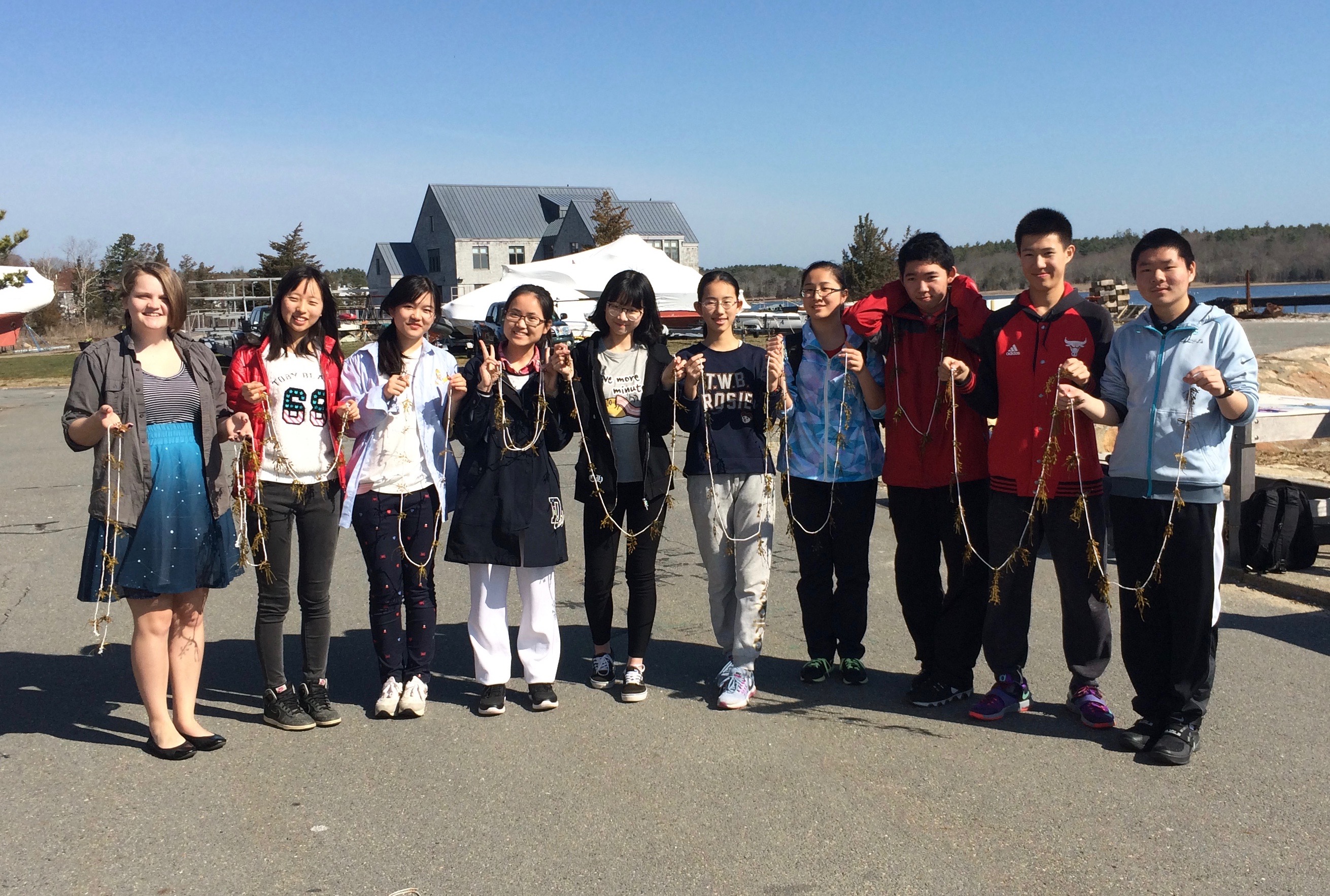We hear frequently about the critical state of the world’s oceans and marine life in peril. Yet too often, we are left feeling helpless - not knowing what we can do to make a difference. This week, Dave Bill and I delivered an Ocean Stewardship lesson to Nautical Science classes and to the Beijing, China exchange students from RDFZ School about ocean acidification. As the oceans absorb rising levels of carbon dioxide from the air, in turn, the excess carbon dioxide lowers the pH of the water. This absorption of CO2 changes the water chemistry and affects shelled animals and reef building corals negatively.
Elizabeth Leary
Elizabeth Leary joined the Tabor faculty in 2006, after earning her master’s degree from Boston University Marine Program based at the Marine Biological Laboratory in Woods Hole. Her passion for marine science began during her year-long internship at the New England Aquarium where she worked in both the Water Chemistry Lab and the Aquarium Medical Center. Elizabeth’s graduate research took her to Gloucester, MA, where she spent three years on a commercial fishing boat assessing the local groundfishery and the role of fishing closures on the ecology of the ecosystem. At Tabor, she teaches Marine Invertebrates and Marine Vertebrates, as well as manages the Schaefer Wet Laboratory in the Marine & Nautical Sciences Center. Elizabeth lives with her family on campus where she and her husband serve as houseparents.
Recent Posts
Marine Science Works to Lessen Effects of Ocean Acidification
Posted by
Elizabeth Leary on Apr 18, 2017 2:07:45 PM
Topics: Marine Science









